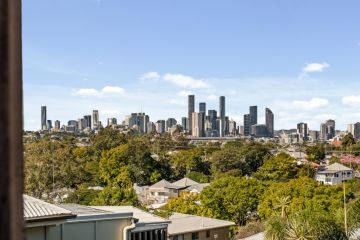Holiday home owners beware: ATO announces Easter crackdown on illegitimate tax deductions

Sydneysider Hamish Baker has welcomed the ATO’s crackdown on property owners claiming tax deductions to which they are not entitled on holidays homes.
“I don’t mind if the ATO want to catch people who are doing the wrong thing, go for it,” said Mr Baker, who has an investment holiday home at Hyams Beach. “In my opinion you’re lucky to claim anything at all and I think if you can’t afford a holiday house, and to run one, you shouldn’t get one.”
Mr Baker’s property is part of a self-managed super fund, which means he faces additional government regulations for its use.
“I think people should pay [the right amount of] tax,” he said. “It might be unfashionable but I can’t stand that people think they don’t have to contribute as much.”
Last week, Assistant Tax Commissioner Kath Anderson said the tax office was focusing on mistakes, errors and false claims made by rental property owners who are using their own property for personal holidays but then claiming on them.
Tax Commissioner Chris Jordan has flagged that the ATO will be cracking down on illegitimate work deductions, and earlier this month said he was concerned tax agents were helping people deliberately scam and cheat the system.
The warnings follow recent random audits of thousands of taxpayers across the country with work-related expenses and rental property deductions.
The rise of sharing economy services such as Airbnb has seen more Australians temporarily renting out their homes, especially over holidays including the Easter period.
Ms Anderson said there must be proof if a home has been rented out: “You cannot claim for times when you were using it for your own personal holidays or letting friends and family stay rent-free,” she said.
“It’s not OK to expect everyone else to pay for your holiday.”
She said holiday home owners also need to remember that if their property is rented to friends and family at “mates rates”, they can only claim deductions for expenses up to the amount of the income received.
“We see things like unreasonable conditions placed on prospective renters, rental rates set above market rates, or failing to advertise a holiday home in a way that targets people who would be interested in it,” she said.
Craig McIntosh of The Holiday’s Collection, which manages Mr Baker’s Hyams Beach house, said those who engaged a property manger were less likely to be leaving a property sitting empty.
“They’re generally running it as a bona fide investment,” he said. “We won’t take on a property that’s only available for a few weeks a year as it’s not worth our while.”
“You’ll get the odd owner who is more relaxed about how many booking they get and keep prices higher to only get bookings that are good, but most are genuinely open to being rented out most of the year.”
Mr McIntosh said it was more likely that owners who rented out their properties less frequently on short-term letting sites, were rorting the tax system.
While the tax office has previously warned about rental property owners – in January 2016 it said it would be writing to 1000 owners who may have incorrectly claimed deductions – Ms Anderson said this year, “rental property claims will not go unnoticed”.
“Where something raises a red flag, it will be investigated,” she said. “Property owners whose claims are disproportionate to the income received can expect scrutiny from the ATO.”
She said a holiday home must be genuinely available for rent: “This means that you must be able to show a clear intention to rent the property, advertise the property so that someone is likely to rent it, set the rent in line with similar properties in the area and avoid unreasonable rental conditions.”
On the random audits, which is an audit done to measure how much money may be theoretically missing rather than the tax office accusing someone of cheating on their tax, Ms Anderson said the ATO’s recent compliance work had shown “a lot of errors made in relation to rental properties”.
Aside from holiday homes, the ATO has been watching rental property deductions given the large volumes of Australians claiming them.
More than 1 million Australians negatively gear their rental properties each year – that is they claim on any maintenance and mortgage interest spent on the home against their taxable income, in order to reduce their taxes.
Ms Anderson said all rental property owners should double-check their claims before lodging their tax return, even if submitting through a tax agent.
We recommend
We thought you might like
States
Capital Cities
Capital Cities - Rentals
Popular Areas
Allhomes
More






